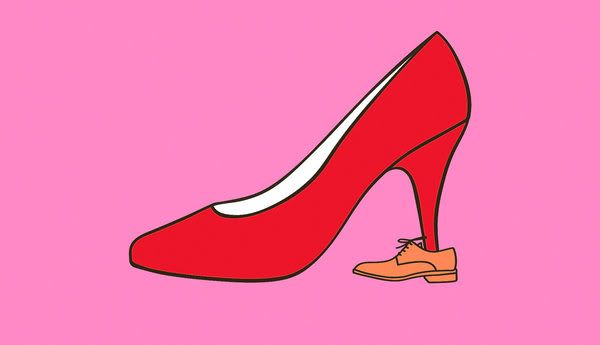博文
为什么美国男人不行了
热度 10 |||
白露为霜注:大卫·布鲁克斯 (David Brooks) 是纽约时报专栏作家也是我最喜欢的政论家之一。在他最新一篇专栏中谈到在新的经济环境下美国男人的危机。在中国也有类似的讲法。虽然我对他的一些观点有所保留,但觉得他有不少独到见解,很值得一看。所以不辞辛苦把它翻成中文,希望对网友有帮助。
以前白露也写过一篇“美国也有男孩危机吗”,更侧重教育方面。有兴趣的网友也可一读。
为什么美国男人不行了
大卫·布鲁克斯
你可能知道基本的趋势。教育的经济回报在过去的几十年里不断增加,但男人们没有收到备忘录。
在中小学时男孩的学习成绩就落后,四分之三的D和F是男孩子得的。到了大学,男人差距就更明显。只有40%的学士以及40%硕士学位授予给男人。
由于技能较低,男人们正从劳动大军中退出。 1954年,96%的25至54岁之间的美国男性有工作。今天这个数字下降到了80%。在上周五的就业报告中,男性劳动人口参与率降到了历史新低。
数以百万计的男人正在领取残疾补助(disability)。即使是那些有工作的也做不好。根据哈密尔顿计划(Hamilton Project) 的迈克尔·格林斯通,在过去的40年里,壮年男子年收入中位数下降了28%。
男人仍然在企业阶梯的最顶尖占据主导,因为许多女性需要停止工作一段时间在家带孩子,但女性在几乎其他所有地方都领先或不断进步。20来岁的女子挣得比20多岁的男子多。在增长最快的15个专业中有12个以妇女为主体。
这些年来我们不少人已经接受了一种理论来解释男人的经济滑落。信息时代的经济奖励某种特质:由于神经系统和文化上的原因,女性比男性更可能拥有这种特质。
如今想要取得成功,你很小的时候在学校里必须能够坐直,注意力集中。你必须在情感上敏锐并了解事情的大环境(Context)。你必须善于沟通。由于遗传和文化的原因,许多男人不适合干这类活。
但是汉娜·罗香 (Hanna Rosin) 在她的引人入胜的新书 “男人的终结”( The End of Men)里提出不同的理论:这同适应性有关。妇女,罗香认为,如同来到一个新的国家的移民,她们看到了新的社会环境并且灵活地适应新的情况。男人像那些身体移到一个新的国家,但脑子还留在原来国家的移民。他们讲的是旧的语言。遵从的是旧的习俗。男性多半僵硬难改,而女性则更可能流畅通达。
这一理论同与生俱来的特质关系不大,更要紧的是社会地位。每当大的社会变革来临的时候,原来处于旧秩序顶部的人必然要坚持老方法。那些原处在底部的人必然经历一种能量的爆发。他们将更加积极地探索新的环境。
罗香观测了阿拉巴马州的工薪阶层。她看见的妇女拥抱新的工作机会和新的机遇 - 回到学校,寻求新的职业途径。而男人们则在等待那些一去不复返的工作。他们很奇怪的对新的选择有免疫力。在奥本欧佩莱卡 (Auburn-Opelika) 地区中,女性的中位收入是男性中位收入的140%。
罗香还从大学校园里报告,那里的女性正在开拓新型的社会安排(social arrangements)。通常的故事是男人利用校园的hookup文化,以获得大量的性而不需付出承诺。罗香认为,事实上年轻女性支持这种hookup文化。这允许她们发生性爱,享受乐趣,又不用从自己的职业生涯中分心。如同新移民一样,女性一门心思地想往上爬,所以她们接受那些社会和性的规则,让她们自由地专注于自己的职业前景。
罗香不是说女性成为全球的两性战争的获胜者,或者她们取得成功仅仅是因为男人做的太差。她只是说在适应当今的经济环境上女性比男性更加灵活和更加顽强。有很多的证据来支持她的观点。
全国独立企业联合会的一项研究发现,在过去的经济衰退中妇女拥有的小企业的表现优于男性拥有的小企业。在金融领域,女性跳槽后工作表现更容易提高,而男性跳槽后更可能发生工作表现下降。甚至有证据显示,妇女在离婚后也能够更好地调整。今天,在婚姻破裂后,看到他们的收入上升了25%的女性多过男性。
40年前,男人和女人坚持一定的意识形态,男人或女人该是什么样的。今天的年轻女性,罗香说,都比较像干净的石板,放弃女权主义和前女权主义(prefeminist)的偏见。男子仍然坚持所谓阳刚的规则(masculinity rules),这限制了他们的视野和活动范围。
如果她是对的话,那么男人就不该像阿喀琉斯(Achilles),把他们的意志强加在世界上,而应该越来越像奥德修斯(Odysseus),成为狡诈而多面的寄居人。他们将不得不承认:他们是在一块陌生土地上的陌生人。
Why Men Fail
By DAVID BROOKS
You’re probably aware of the basic trends. The financial rewards to education have increased over the past few decades, but men failed to get the memo.
In elementary and high school, male academic performance is lagging. Boys earn three-quarters of the D’s and F’s. By college, men are clearly behind. Only 40 percent of bachelor’s degrees go to men, along with 40 percent of master’s degrees.
Thanks to their lower skills, men are dropping out of the labor force. In 1954, 96 percent of the American men between the ages of 25 and 54 worked. Today, that number is down to 80 percent. In Friday’s jobs report, male labor force participation reached an all-time low.
Millions of men are collecting disability. Even many of those who do have a job are doing poorly. According to Michael Greenstone of the Hamilton Project, annual earnings for median prime-age males have dropped by 28 percent over the past 40 years.
Men still dominate the tippy-top of the corporate ladder because many women take time off to raise children, but women lead or are gaining nearly everywhere else. Women in their 20s outearn men in their 20s. Twelve out of the 15 fastest-growing professions are dominated by women.
Over the years, many of us have embraced a certain theory to explain men’s economic decline. It is that the information-age economy rewards traits that, for neurological and cultural reasons, women are more likely to possess.
To succeed today, you have to be able to sit still and focus attention in school at an early age. You have to be emotionally sensitive and aware of context. You have to communicate smoothly. For genetic and cultural reasons, many men stink at these tasks.
But, in her fascinating new book, “The End of Men,” Hanna Rosin posits a different theory. It has to do with adaptability. Women, Rosin argues, are like immigrants who have moved to a new country. They see a new social context, and they flexibly adapt to new circumstances. Men are like immigrants who have physically moved to a new country but who have kept their minds in the old one. They speak the old language. They follow the old mores. Men are more likely to be rigid; women are more fluid.
This theory has less to do with innate traits and more to do with social position. When there’s big social change, the people who were on the top of the old order are bound to cling to the old ways. The people who were on the bottom are bound to experience a burst of energy. They’re going to explore their new surroundings more enthusiastically.
Rosin reports from working-class Alabama. The women she meets are flooding into new jobs and new opportunities — going back to college, pursuing new careers. The men are waiting around for the jobs that left and are never coming back. They are strangely immune to new options. In the Auburn-Opelika region, the median female income is 140 percent of the median male income.
Rosin also reports from college campuses where women are pioneering new social arrangements. The usual story is that men are exploiting the new campus hookup culture in order to get plenty of sex without romantic commitments. Rosin argues that, in fact, women support the hookup culture. It allows them to have sex and fun without any time-consuming distractions from their careers. Like new immigrants, women are desperate to rise, and they embrace social and sexual rules that give them the freedom to focus on their professional lives.
Rosin is not saying that women are winners in a global gender war or that they are doing super simply because men are doing worse. She’s just saying women are adapting to today’s economy more flexibly and resiliently than men. There’s a lot of evidence to support her case.
A study by the National Federation of Independent Business found that small businesses owned by women outperformed male-owned small businesses during the last recession. In finance, women who switch firms are more likely to see their performance improve, whereas men are more likely to see theirs decline. There’s even evidence that women are better able to adjust to divorce. Today, more women than men see their incomes rise by 25 percent after a marital breakup.
Forty years ago, men and women adhered to certain ideologies, what it meant to be a man or a woman. Young women today, Rosin argues, are more like clean slates, having abandoned both feminist and prefeminist preconceptions. Men still adhere to the masculinity rules, which limits their vision and their movement.
If she’s right, then men will have to be less like Achilles, imposing their will on the world, and more like Odysseus, the crafty, many-sided sojourner. They’ll have to acknowledge that they are strangers in a strange land.
免责声明:本文中使用的图片均由博主自行发布,与本网无关,如有侵权,请联系博主进行删除。
全部作者的其他最新博文
发表评论 评论 (17 个评论)
- 回复 白露为霜
- 这种类型的分析在学理科的人看来也许不一定有说服力。毕竟找反例也不是难事。谢谢留言。
今又是: 谢谢你的捕捉和切入,谢谢你的时间和付出。泛社会型的分析一般就是这样,从较普遍的现状里,指出变化的趋势,也或指出变化的原因和趋势,并不一定提供依据或解决 ...
- 回复 今又是
- 谢谢你的捕捉和切入,谢谢你的时间和付出。泛社会型的分析一般就是这样,从较普遍的现状里,指出变化的趋势,也或指出变化的原因和趋势,并不一定提供依据或解决方案,可能需要其他的,或综合的专业人士来辅政。那样就会比较具体了。握手!
- 回复 白露为霜
- 太概括了的问题是别人总可以找出反例来反驳。但研究张三李四个体有啥意思?这也可能是研究社会学的困境。
rubin: 从不相信“美国人怎样怎样",”中国人怎样怎样“的宏大概论。
倘若他来研究张三李四约翰汤米怎样,还有点靠谱。 ...
- 回复 白露为霜
- 没有嫉恨男人啦。是担心。
礁石: 博主讲得是40年来女性地位的提高。自然也就是男性的地位和收入的相对下降。
不说几百万年的进化,人类的文明就有五千年。Y染色体在40年发生突变,莫非地球末日 ...
- 回复 礁石
- 博主讲得是40年来女性地位的提高。自然也就是男性的地位和收入的相对下降。
KQRBNP: 有意思! 曾有研究报道人类的Y染色体在进化过程中因逐渐丢失基因而退化。 不知这是否有关联。
不说几百万年的进化,人类的文明就有五千年。Y染色体在40年发生突变,莫非地球末日真的来临了。
希望妇女别都这么妒恨男人哪。。。俺本来是主张男女平等。反对过去歧视妇女的社会体制。现在发现,为何在妇女地位提高的同时,却要把男性变成嘲笑的对象。
无视社会环境的改善,无视为争取男女平等的努力,把女性地位的提高说成是男性无能的表现,是男性退化的证据。
太过分吧。







